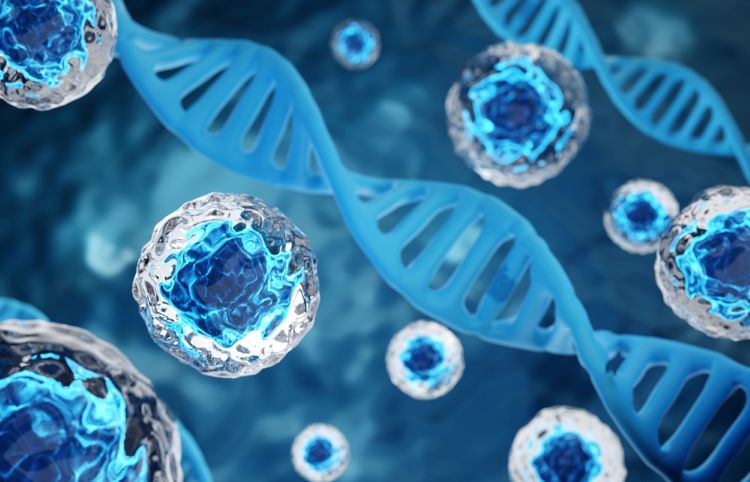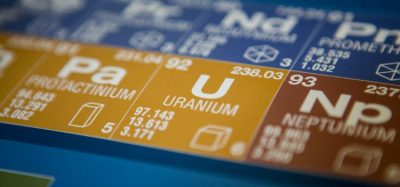Amid FDA turmoil Sarepta’s gene therapy worries begin to ease
Posted: 1 August 2025 | Dominic Tyer (European Pharmaceutical Review) | No comments yet
But the impact of George Tidmarsh’s CBER appointment after Vinay Prasad’s abrupt resignation remains to be seen.


The cell and gene therapy world will be watching closely to see how the latest US regulatory twists and turns play out after a week that saw a key decision reversed and the exit of a high-profile appointee.
On Monday Sarepta Therapeutics announced it would be restarting some shipments of its lead gene therapy for duchenne muscular dystrophy (DMD) in the US following a change of heart by the US Food and Drug Administration (FDA).
The regulator allowed Sarepta to lift the voluntary pause on Elevidys (delandistrogene moxeparvovec) for DMD patients who are ambulatory. However, its use in those whose disease progression means they are unable to walk remains suspended.
It’s the latest stage in an ongoing saga that has seen the Cambridge, Massachusetts-based biotech’s work both commended and criticised by the regulator in recent months.
On the positive side, Sarepta received one of the FDA’s first platform technology designations earlier this year for rAAVrh74, the viral vector used in its SRP-9003 (bidridistrogene xeboparvovec), an investigational gene therapy for limb-girdle muscular dystrophy (LGMD) type 2E/R4.
Platform technology designations are intended to increase the efficiency of drug development, manufacturing and review processes during product applications, with potentially significant implications for the regulatory and commercial strategies guiding novel drugs and biologics products. The FDA’s platform technology designation guidance was published in May 2024 and Sarepta won its designation in June.
That same month the FDA held its first Cell and Gene Therapy Roundtable meeting, which involved some 23 external experts. One of those in attendance was Terence Flotte, Dean of the UMass Chan Medical School and President of the American Society of Gene and Cell Therapy, who took the opportunity to voice his pleasure at the platform designation announcement for rAAVrh74.
The patient community is an important voice, and the FDA will continue to listen to and respond to thoughts from the community impacted by DMD”
But it’s been a rocky road of late for Sarepta’s DMD therapy Elevidys. First approved in 2023, the FDA requested its distribution be halted last month after three deaths due to acute liver failure among patients treated with Elevidys and SRP-9004, another of the firm’s LGMD treatments.
Sarepta initially decided to continue with Elevidys shipments for ambulatory patients, noting: “We first heard of this potential request … at the same time the public and our patient communities did, through media reports.”
Four days later the company chose to pause all shipments of the product. The FDA subsequently investigated a fourth death, that of an eight-year-old boy in Brazil treated with Elevidys, but has since ruled it was unlikely to be related to the medication.
The regulator then said it would allow shipments for ambulatory patients to be restarted, a decision that came just 10 days after its initial clinical hold request.
THE FUTURE OF CELL AND GENE THERAPY
Download this Pharma Horizons report from EPR to learn more about:
• Cell and gene therapy commercialisation
• Mycoplasma testing challenges
• Aseptic validation and innovation
• QC and analytical strategies
• PAT implementation for cell therapies
…and much more.
VIEW THE REPORT
Insight into the FDA’s sudden reversal over Elevidys might be found in the regulator’s statement that “the patient community is an important voice, and the FDA will continue to listen to and respond to thoughts from the community impacted by DMD”.
Commenting on the decision, advocacy group Parent Project Muscular Dystrophy (PPMD) said: “PPMD deeply appreciates the FDA’s acknowledgment of the Duchenne community’s voice and its ongoing commitment to listening and engaging with those most impacted by this disease.
“We remain dedicated to working with the agency to ensure that the needs, hopes, and lived experiences of individuals and families affected by Duchenne continue to inform every step of the decision-making process.”
Prasad out, Tidmarsh in at CBER
Meanwhile, a surprise change in FDA leadership might ease some of the Sarepta’s worries.
The day after the FDA’s decision that Elevidys shipments could restart, the Director of its Center for Biologics Evaluation and Research (CBER) Vinay Prasad abruptly resigned in the wake of campaigning by far-right activists.
Notable among these was Laura Loomer, an ally of President Donald Trump, who had labelled Prasad a “progressive leftist saboteur” and said he was undermining the agency’s work.
Responding to Prasad’s departure, FDA Commissioner Marty Makary told CNBC: “He did a tremendous amount of implementation of new policies in the time that he was at the FDA. I think the guy’s a genius – he’s published 550 scientific, peer-reviewed studies in his career. He’s 42 years old, so he gave us some of his time.”
However, Prasad – who held the post for less than three months, was a controversial appointment among much of the scientific establishment.
Prasad – who held the post for less than three months, was a controversial appointment among much of the scientific establishment”
His critical stance on accelerated approval pathways saw cell and gene therapy (CGT) manufacturers’ shares plunge when he was appointed in May to lead the CBER, whose remit includes vaccines and cell and gene therapies. Shares in Sarepta and a number of other gene therapy firms rose on the news of Prasad’s exit.
His interim replacement was swiftly announced as Dr George Tidmarsh, PhD, who will do double-time alongside the Center for Drug Evaluation and Research (CDER) Director post he had only held for nine days before being tapped to replace Prasad.
Tidmarsh is a former pharma industry executive whose public profile is much lower than that of his outspoken predecessor. Nevertheless, Tidmarsh has shared opinions that “NIH grants are a scam” and hailed the appointment of Covid lockdown sceptic Jay Bhattacharya to lead the NIH by saying: “Now the work begins to make science great again.”
However, in an episode of the FDA’s new FDA Direct YouTube series where discussion turned to the case of Baby KJ, whose treatment with a personalised CRISPR-based medicine was a world-first in May, he was far more complimentary about scientific convention.
“It’s amazing. The progress in not only the diagnosis but the therapy for an inheritable genetic disease is stunning”
“It’s amazing. The progress in not only the diagnosis but the therapy for an inheritable genetic disease is stunning. When I trained, we did not have the tools to even diagnose – most of the genetic disorders were diagnosed mostly through a combination of doctor analytical skills, lab tests and some specialised tests,” Tidmarsh said.
He added: “If you look through the history of medicine, many of the great breakthroughs were by a single case study that was diagnosed and treated in a way and that led to great breakthroughs for large populations.”
Tidmarsh’s PhD is in cancer biology and his academic mentor played a pioneering part in the development of research into the role of stem cells in oncology, so – while its true impact remains to be seen – his CBER appointment is likely to be a positive step for cell and gene therapy firms.
Meanwhile, although Sarepta moved quickly to resume shipments of Elevidys for DMD patients still able to walk, it still has to resolve the situation for the treatment’s full approved patient population.
Chief Executive Officer Doug Ingram said: “We look forward to working collaboratively with the FDA to complete the safety label update for Elevidys and to discussing the approach to risk-mitigation for non-ambulatory patients, who remain on pause pending the outcome of those discussions.”
About the author
Dominic Tyer is the Editor of European Pharmaceutical Review. You can connect with him at LinkedIn or follow him on Bluesky.
Related topics
Related organisations
Center for Biologics Evaluation and Research (CBER), Center for Drug Evaluation and Research (CDER), Sarepta Therapeutics, US Food and Drug Administration (FDA)








